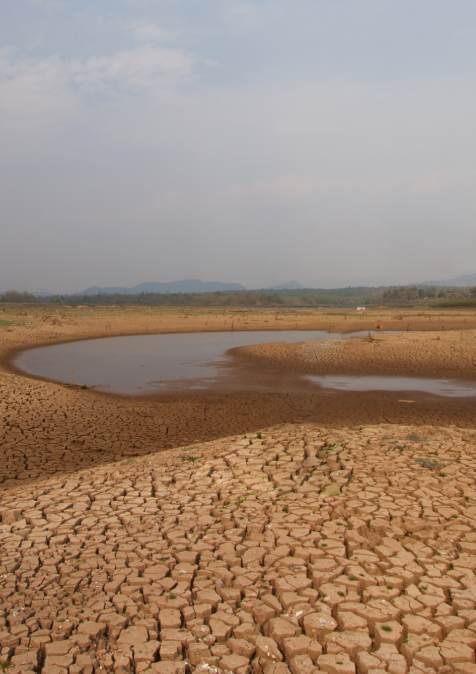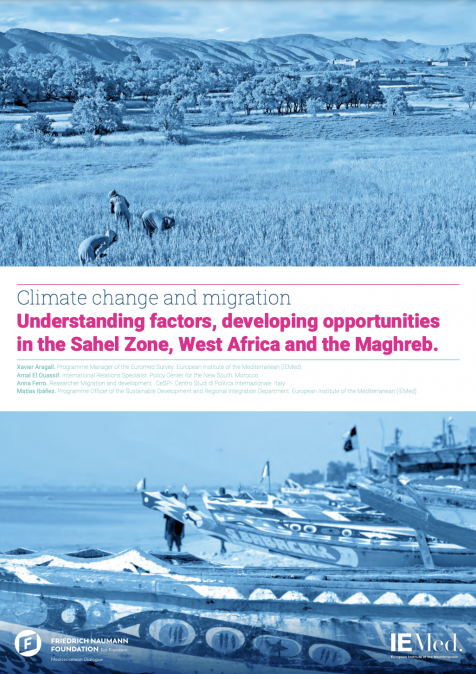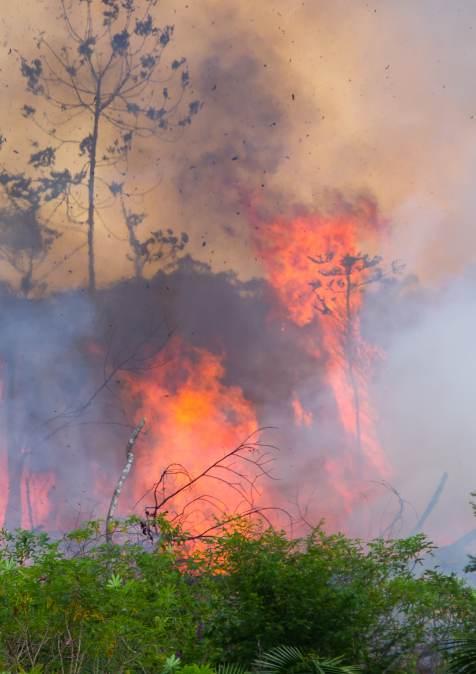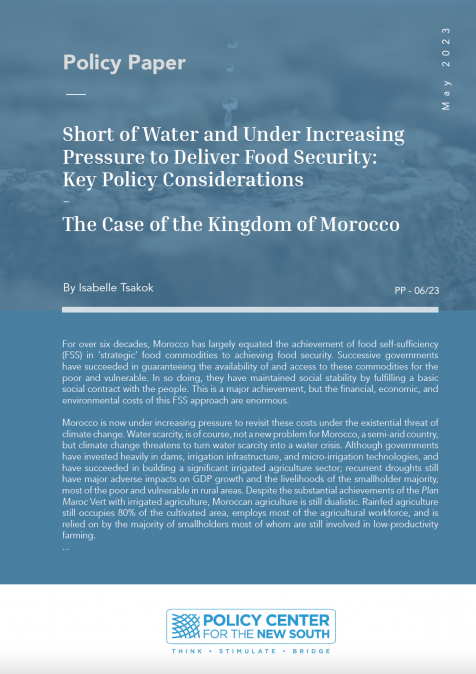Publications /
Opinion
Simon Kofe, the Foreign Minister in charge of Communication and Justice of Tuvalu, a 25.9 square miles’ nation located in the South Pacific, was standing at the podium in suit and tie. But when he rolled up his trouser, he was barefoot, feeling white sand under his feet, the warm, sparkling clear water up to his knees. A PR stunt filmed at the far end of Fongafate, the primary islet of the capital Funafuti.
Tuvalu’s population is about 11 000 inhabitants, and it is one of the world’s poorest nations. Soon, the idyllic, yet forgotten island in the sun may disappear, drowned by ever rising sea level. One more victim of climate change and the folly of mankind.
Mr. Kofe asked his fellow at the UN- Climate sponsored summit in Glasgow Scotland via video link to look at him closely, “a real life situation”, an island’s representative, not Gone with the Wind, but disappearing in the ocean, its sand and palm tree covered beauty turned into “the frontline of climate change” (Reuters, November 8, 2021).
Not only the tiny island nation in the South Pacific moving towards an abyss, but the whole planet, drowned, burned, suffocated, wiped off by hurricanes, typhoons, earthquakes, tsunamis, temperature below 50 degrees Celsius or 50 degrees above, drought and starvation, dying of thirst, swept away by monsoon flooding, cyclones and the ignorance of mankind, driven towards the apocalypse by delusions united in denialism, yes, by the egotism of nations ready to sacrifice the future, but not their seats in parliament or risk to be voted out of the White House.
The Glasgow summit “has been widely described as the world ‘s last -chance opportunity to curtail the existential impacts of the warming planet”, noted Bud Ward, editor of the multimedia environmental” Yale Climate Connections”(November 5, 2021) adding the “Economist” “upped the ante”, reminding that “there has never been a collective human endeavour more ambitious than stabilizing the climate.”( October 30, 2021, https::www.economist.com) ”What then is “success”, asks Ward, “when it comes to measuring the impacts of Cop26? Is it merely more back patting and high fiving happy face expressions of concern? More words and voices of from commitment, from the many countries participating? (which is not to mention those national leaders from China, Russia and Brazil and others in action).
Post Glasgow and post Cop26.
Then comes the hard part, we may by then all wish we indeed had put our best foot forward from the get go?” On October 13, 2020, the United Nations Office for Disaster Risk Reduction” (UNDRR) published an alarming study, reporting on a “staggering” rise in climate-related disasters, including extreme weather events: those doubled from 3556 in 1980-1999 to 6681 in 2000-2019; the number of major floods more than doubled, from 1389 to 3254, incidences of destructive storms rose from 1457 to 2024. In the past 20 years, stated the UN report, there were nearly 7350 recorded disasters, including earthquakes and tsunamis, which claimed more than 1.2 million lives and affected 4.2 billion people.
They caused about 3 trillion in global economic losses-close to twice the amount in the preceding two decades. British insurance broker “Aon” reported in a weather damage study (“Weather, Climate &Catastrophe Insight”, 2020 annual report, January 25, 2021) that the earth last year, was besieged by a record 50 billion weather disaster, a record. estimated, global economic loss from all 416 weather and earthquake disasters catalogued by “Aon” amount to 258 billion dollars, wrote Jeff Masters hurricane scientist and air pollution meteorologist in a “Yale Climate-Connection “article (January 25, 2021).
The US scientist recorded a 70 billion loss through wildfires since the year 2000, 75 percent of the losses accumulated over the last five years alone. Since 1980 the United States has sustained 285 separate billion-dollar weather and climate disasters. Total loss:1.8 trillion dollars.
The costs and losses of severe weather events during the past five years (2016 -2020) exceeded 606 billion dollars, a record for any fiveyear period, alarming trends and figures, which Donald Trump, a climate change denialist, possibly never studied during his White House years. The most expensive disaster of 2020 was the summer monsoon flooding in China-35 billion dollar in damage.
If the 1.5 Celsius border has been passed, and the earth is continuing its fatal warming rhythm, Beijing’s leaders have reason to shiver, predicted scientists; since “each O.5 Celsius of warming increases annual flood losses in China by more than 60 billion dollar” (Bulletin, “American Meteorological Society”, August 1, 2020).
In its disaster report the UN authors concluded ”It is baffling that we willingly and knowingly continue to sow the seeds of our own destruction ,despite the science and evidence, that we are turning our only house to an uninhabitable hell for million of people.”
“Uninhabitable hell”
Hisham Aidi notes in his Policy brief “Climate change and Ecological Pan-Africanism” (“Policy Center for the New South”, September 2021) that Africa “is often overlooked in international policy conversations about climate change, but the continent has not been spared extreme weather events. (The UN report, October 13, 2020, noted 1192 severe weather or natural disaster events in Africa 2000 - 2019).
By some accounts, “the Middle East and parts of North Africa are warming at twice the global average. Greenhouse gas emissions have tripled in the Middle East in the last 3O years, all of which could make cities unliveable, spurring migration and exacerbating ethnic conflict.” Aidi believes, that climate change aggravated the Syrian Civil war and refugee crisis; an extended drought drove the rural poor into Syria’s cities.”
For the analyst climate change is a “threat amplifier” in various parts of the Middle East and Africa. ”Recent research shows that rising temperatures and increased rainfall variability are undermining food security for Farmers across Eastern and Southern Africa, most of whom already live art subsistence levels.”
According to the World Bank (Press release June 7, 2021) 6500 square kilometres of the Coastal areas in West Arica could be degraded by rising sea levels, as population rates swell, making the region home to an estimated 85 million people by 2050.
Hisham Aidi observed:” Rising sea levels are already leading to skirmishes over fishing grounds between Senegal and Mauritania; Irregular rainfall has made life more precarious for the estimate 25 million Sahelian herders, who travel south during the dry season, and then north during the rainy season. Millions have been displaced in Mali, Togo, Senegal and Ivory Coast. And conflict has broken out on the Frontier between Burkina Faso, and Mali, and in Nigeria’s “Middle Belt “region”.
Debarati Guha- Sapir, Indian Epidemiologist and director of the Université Catholique de Louvain, Belgium, co-author of the UN global disaster report, warned: «If extreme weather continues to grow at the same rate over the next 20 years, the future of mankind looks very, very bleak indeed. ”In Dante Aligheris 14 th century epic poem “Divine Comedy” the Italian poet depicted hell as nince circles of torment located with earth .Those ,who rejected spiritual values or perverted their human intellect to fraud or malice against their fellow citizens were facing the fire. More than 700 years after Dante’s death, all hell has broken loose on our planet, and humanity is turning into sinners, disregarding climate change, nonchalant in their reaction towards one or three degrees more warming of our earth, insulting scientists and environmentalist as liars and their findings as “fake news”.
Treaties are signed, documents are presented as hope for the world, yet, local and national politics, global competition, and the dark clouds of Covid, are erasing good intentions and hope, which is, we know, “the last thing that dies”, as Vera Nazarian, the Russian-American author, discovered while writing. When Venice is sinking in the floods, or Tuvalu in the South Pacific has disappeared, it will be late, perhaps too late to save the world. Possibly, posthumously, a tenth circle could be added to Dante’s hell, inferno and fire for climate change deniers, those who think global warming helps tourism.
The opinions expressed in this article belong to the author.











